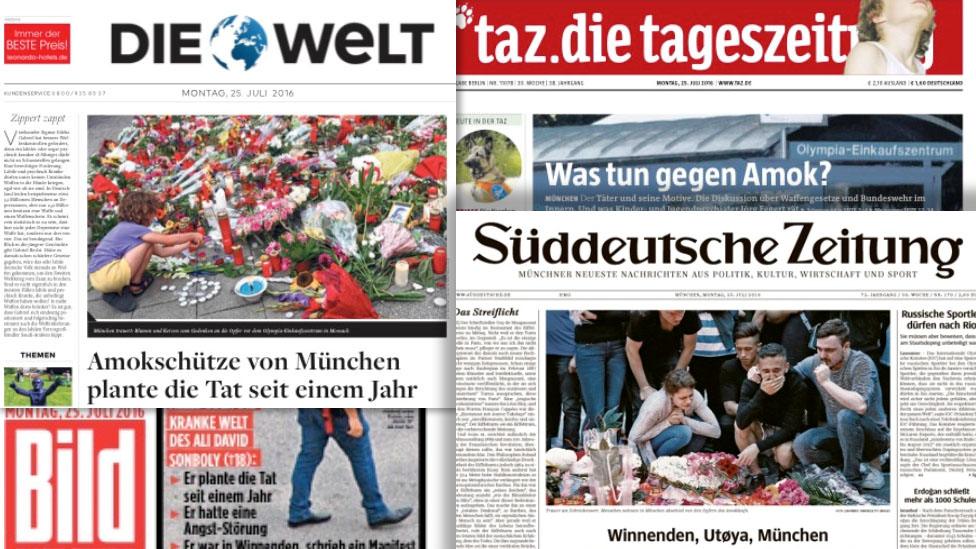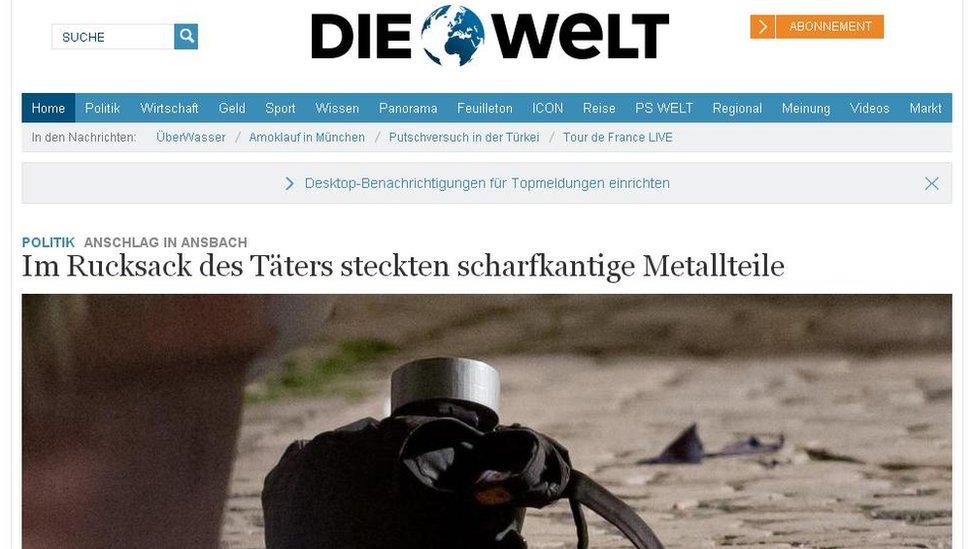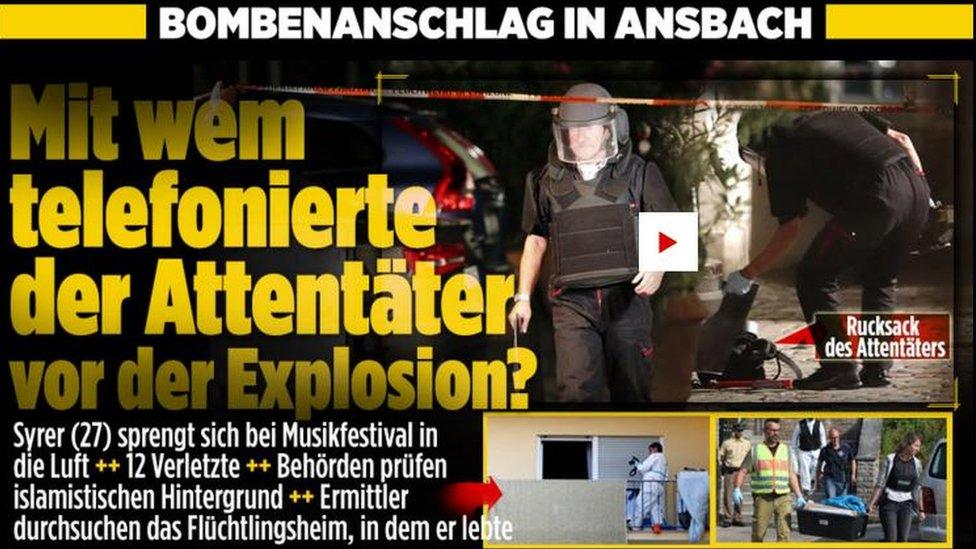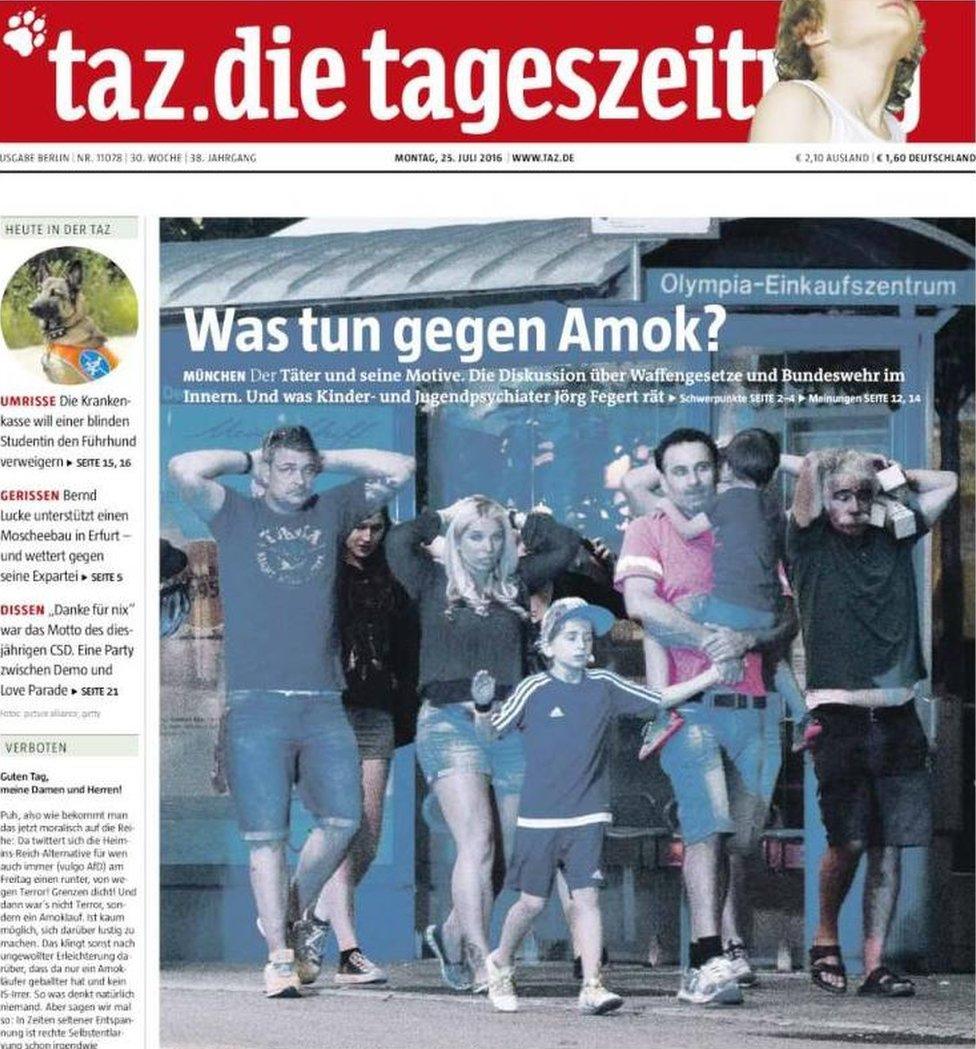German press concern at spate of violence
- Published

Monday's papers still focus on Friday's Munich shootings
The German media have reacted with shock and concern to the recent spate of killings but are wary of jumping to wider conclusions and warn against giving in to fear.
The latest attack - a Syrian refugee blew himself up in the Bavarian town of Ansbach, wounding 12 others - came too late for Monday's front pages, which are still full of coverage of Friday's shooting of nine people in a Munich shopping centre.
The two incidents follow an axe and knife attack by an Afghan refugee on a train near the Bavarian city of Wuerzburg that injured five people.
Several news websites quote Bavaria's Interior Minister Joachim Herrmann as saying that an Islamist connection to the Ansbach attack was "very likely", external.

Die Welt reports that the Ansbach attacker's rucksack contained shrapnel
'Lonely and ill'
Several highlight the fact that the Ansbach perpetrator was a failed asylum seeker, external who arrived from Syria two years ago, but none draw a link to the wider debate about the migrant crisis.
Terrorism expert Georg Mascolo tells the public broadcaster ARD, external the style of the attack - a rucksack bomb - is new for Germany and "extremely worrying", but adds that it is too early to conclude that it was a jihadist attack.

Tabloid Bild reports that the Ansbach attacker spoke on the telephone shortly before blowing himself up
Reaction to Friday's shootings in Munich focus mainly on reports that the attacker - 18-year-old David Ali Sonboly - suffered from psychological problems, and had been planning the attack for a year.

"The Munich bloodbath": Tabloid Bild says attacker Sonboly wrote a manifesto expressing his "Hatred for people"
A profile of him by news magazine Der Spiegel describes him as "lonely, ill and utterly determined, external", and reports that he was in conflict with classmates, showed signs of resentment against ethnic Turks and was deeply immersed in single-person shooter games.
Under the headline "Winnenden, Utoya, Munich", external, Sueddeutsche Zeitung reports that Sonboly visited the scenes of a 2009 gun rampage by a 17-year-old in the town of Winnenden.
It adds that there is continued speculation about the date of the attack - the fifth anniversary of Anders Behring Breivik's massacre of 77 people on the Norwegian island of Utoya.
'Virally transmitted'
In the commentary pages, the wave of violence in Germany has prompted a debate on the causes and possible ways to deal with such shooting sprees.

"What can we do against shooting sprees?" wonders Die Tageszeitung, above an image of people fleeing Friday's shooting in Munich
Under the headline "infectious insanity", the editor-in-chief of Die Welt, external, Stefan Aust, wonders whether social media and the internet have helped violence become "virally transmitted like common flu".
But Carsten Knop, business editor of Frankfurter Allgemeine Zeitung, external, warns against blaming social media, which have their "good and bad sides".
"Terror and the glorification of violence have no place in any medium, but the perpetrators take the step from virtual reality for other reasons," he says.
On the wider issue of violence, commentator Marlene Halser thinks that there is "no satisfactory solution" for the dilemma of choosing between "security and giving the perpetrators of violence what they want".
"Our fear is their power - and both are growing massively at the moment," she writes in Tageszeitung, external.
BBC Monitoring reports and analyses news from TV, radio, web and print media around the world. You can follow BBC Monitoring on Twitter, external and Facebook, external.